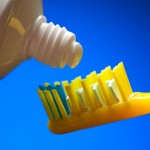
Recurrent aphthae stomatitis is a common oral mucosal problem that has been estimated to affect one in 5 people at least once during their lifetime. Recurrent aphthae stomatitis is of unknown aetiology but is associated with a number of factors eg. genetic pre‐disposition, stress, menstrual cycle, immune dysregulation, and deficiencies in haematinic factors such as iron, folic acid (folate), and vitamin B. A majority of commercially available toothpastes use sodium lauryl sulphate (SLS) an alkyl sulphate surfactant derived from organic alcohol as the detergent. However, SLS can cause skin and mucosal irritation and it may potentiate recurrent aphthae stomatitis
The aim of this review was to assess the effects of SLS-free and SLS-containing dentifrices on patients with recurrent aphthous stomatitis (RAS)?
Methods
Searches were conducted in the PubMed/Medline, Embase, Cochrane, PsycINFO, OpenGrey, the US National Institutes of Health Ongoing Trials Register (ClinicalTrials.gov) and the World Health Organization International Clinical Trials Registry databases. Randomised controlled trials (RCTs) assessing the effects of SLS-free and SLS-containing toothpastes on RAS were considered. Two reviewers independently selected studies extracted data and assessed risk of bias using the Cochrane tool and meta-analysis was conducted.
Results
- 4 RCTs of cross-over design were included.
- 2 studies were considered to be at high risk of bias and 2 at unclear risk.
- Meta-analysis (2 studies 66 participants) found a statistically significant reduction in ulcer numbers for patients were using SLS‐free dentifrices compared to SLS‐containing: mean difference (MD) = −1.05 ulcers (95%CI; −1.87 to −0.23).
- Meta-analysis (89 participants) also showed a statistically significant reduction in duration of ulcers (DOU), number of episodes (NOE), and ulcer pain (UP) for SLS‐free toothpastes as compared to SLS‐containing toothpastes.
- DOU: MD= −1.99 days (95%CI; −3.85 to −0.14)
- NOE: MD= −0.56 episode (95%CI; −1.02 to −0.09)
- UP: SMD= −0.50 (95%CI; −0.82 to −0.17)
Conclusions
The authors concluded: –
The available evidence suggests that patients with RAS may benefit from using SLS-free dentifrices for their daily oral care. However, future well-designed trials are still required to strengthen the current body of evidence.
Comments
The authors have undertaken a broad search strategy for this review. They have chosen only to include double blind randomised controlled trials excluding single-blinded RCTS. All of the included RCTs have a cross-over design, while conferring some benefits there is always a concern as to whether the washout period between different arms of the study are sufficiently long enough to mitigate the effect of any carry over effects.
While the review suggests a positive effect on RAS from the use of SLS-free toothpaste the included studies are small with only 132 patients involved in total. So given that none of the included studies were considered to be at low risk of bias the findings should be viewed with caution and further well designed and reported studies are needed.
Links
Primary Paper
Alli BY, Erinoso OA, Olawuyi AB. Effect of sodium lauryl sulfate on recurrent aphthous stomatitis: A systematic review. J Oral Pathol Med. 2019 Mar 6. doi:10.1111/jop.12845. [Epub ahead of print] Review. PubMed PMID: 30839136.
Other references
Dental Elf – Recurrent aphthous stomatitis blogs
